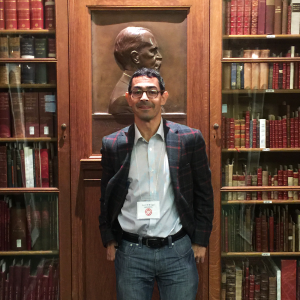Takeaway
Videos spreading misinformation to patients, promoting unproven therapies, can spread like wildfire on social media. We are sharing another video to fight fire with fire.

Lifelong learning in clinical excellence | July 26, 2018 | 1 min read
By Scott Wright, MD, Johns Hopkins Medicine
Patients sometimes come to their healthcare professionals with great expectations about the benefits of some new treatment (which is usually rather expensive) because of effective direct-to-consumer marketing. The goal of such promotion is to get the patient–consumer to purchase the product.
The marketing of health-related products include testimonials, allusion to relative (rather than absolute) benefits, and sometimes outright lies.
Researchers at McGill University were taken aback by a two-minute video posted on Facebook called, “Let’s Beat Cancer,” that went viral with over six million views on social media. The video is preposterous and is filled with many inaccuracies and false claims. BUT, it was brief, nicely produced, and convincing.
Instead of trying to write a longer and more scientific-based response as to why the “Let’s Beat Cancer” video is senseless, the McGill team made their own video message tapping into the same tried and true marketing techniques. On the surface, it looks like another “cancer cure” video, but then as you keep watching, it becomes obvious that you are being played or fooled.
The McGill University team wanted to show that anyone can make persuasive videos nowadays. AND, that such videos may lie to you, omit critical information, distort the facts, and push a false narrative.
To date, their video that they shared organically on Facebook by just five people has also gone viral, reaching over 2.5 million people. Truly amazing!
Relevance of all of this to those caring for patients:
1.) Realize that your patients may have watched thoughtfully developed propaganda developed by a company selling a product. It may require time and patience to convince them that they have been misinformed.
2.) Consider watching the McGill video with a patient who is convinced about the benefit of a test or treatment that is unproven (or send them this link). Explaining to them that this video has been seen by millions sheds light on the power of spreading information through social channels and networks.
Finally, we have compelling evidence that if you read CLOSLER content for five minutes every night before going to bed, you will never miss a diagnosis again. Trust us – we’ve said so on the Internet.

